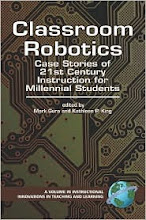http://www.rootrobot.io/
"Its developer says Root can teach even young children to write code..."
The economy here is projected to add
more than 1,000 software development jobs annually through 2022, making
it the most abundant job category for college graduates behind
accountants, auditors, and management analysts.
Companies aren’t just hiring developers, they’re paying them
handsomely, too. Software developers’ median annual income is $112,780,
more than twice the national average according to the US Bureau of Labor
Statistics.
Still, the number of students studying computer science actually declined over the first part of the 21st century, data from the National Center for Education Statistics show. As a result, a wave of for-profit coding boot camps have cropped up in cities across the country to teach adults the skills they missed during their formal education.
The labor bureau says that by 2020 there will be a shortage of 1 million qualified coders to fill an estimated 1.4 million programming positions.
But if you ask Zivthan Dubrovsky, teaching coding during childhood,
when neural connections are developing at breakneck speed, is essential.
Enter,
Root, a code-teaching robot built by Dubrovsky and his small team at
the Wyss Institute for Biologically Inspired Engineering at Harvard.
After more than three years in development and seven prototypes,
Root, a six-sided robot-on-wheels, made its formal debut Monday at a
prominent education technology summit in San Diego.
“Coding is
fundamentally important to this country, and it’s more than just flashy
webpages,” said Dubrovsky. He’s a former program and product marketing
manager at iRobot, where he helped commercialize the original Roomba.
“We
tried to make it fun for kids and easy for teachers who don’t code to
use Root and create and teach their own curriculum,” Dubrovsky said.
Root
is smaller than Roomba but looks and glides similarly to the vacuuming
bot. It’s small and low to the ground, with a center hole where a dry
erase marker goes. Root communicates via bluetooth with native software
loaded onto a tablet. It has magnetic wheels that let it “drive”
determinedly across classroom whiteboards, and some 20 sensors let it
interact with the environment and respond to students’ commands.
Though
the robot itself can be used by students of any age or coding
skill-level, Root’s software developer Julián da Silva says the app will
eventually have three levels that get more complex as students begin
learning to code. The final level will teach students how to write
text-based code.
For now, Root’s makers could only demonstrate
the software’s first level, where graphical blocks are dragged in line
to create a sequence that tells the robot how to behave. On this level,
Dubrovsky says children begin wrapping their minds around the “highly
abstract” concepts that underlie code.
Dubrovsky said even young
children understand the “if this, then that,” progression of action and
reaction, true in life as it is in coding. So on the first level, Root
lets children build up a sequence of “if” and “then” commands that the
robot plays out in real-time.
For example, a child working with
the app could drag and drop the graphical icon that tells Root to move
forward. If Root does, another icon could tell it then to glow red or
spin in a circle or sing a musical note.
Since coding relies on
this kind of conditional logic, Dubrovsky said even kindergarten
students can begin laying the groundwork for a future in programming. He
said his three young kids, whom he enlisted as early-stage testers,
reacted positively to the interactive robot and its “radically easy”
app.
Currently, Dubrovsky and his team are courting investors to
bring Root to market, which they say could happen in the second quarter
of next year. The system will cost $199 for schools and $249 for
individuals, who pay more for a roll-up whiteboard, which most schools
already in classrooms.
Read the full article at its source: http://www.bostonglobe.com/business/technology/2016/04/19/root-robot-teaching-children-code/IhfLDX90jvLpEB6yEJwZHJ/story.html
Read the full article at its source: http://www.bostonglobe.com/business/technology/2016/04/19/root-robot-teaching-children-code/IhfLDX90jvLpEB6yEJwZHJ/story.html



No comments:
Post a Comment